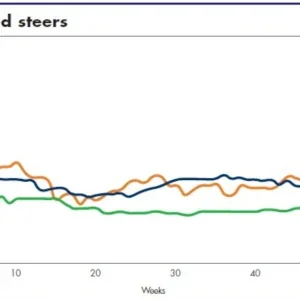The government plans to reimpose export duties on raw leather to ensure sufficient supplies of the commodity on the local market. Export duties would be set between 20-25% compared with the current zero.
Ferry Yahya, director of agriculture, Ministry of Industry and Trade, said: ‘Minister of Finance Boediono has in principle agreed to reimpose the export duties.
We are now waiting for the issuance of a ministerial decree.’ He said the new policy was in line with demands from the industries that relied on raw material.
The Indonesian Tanners’ Association and the Indonesian Footwear Association have both called for the reimposition of export duties and claim the zero duty policy applied to raw leather had resulted in supply shortages on the local market. They believe that the government should also ease the rules curbing imports of raw leather.
Export taxes on raw were 200-300% before the government removed them to comply with the economic reform programme agreed with the IMF. Exports then surged on the rise in price on the international market, causing a local shortage.
The situation worsened following the government’s move to impose tighter requirements on imports amid fears that leather could introduce FMD. Indonesia imports raw material from India, Pakistan, Brazil, Australia, France, Argentina, Germany and the US.
The number of local tanneries has decreased due to the lack of raw materials, and there were now only 47 large and mid-sized tanneries nationally with a total annual production of 72.5 ft/year compared with 112 with a total annual output of 210 million in 1998.
The number of tannery employees declined from 12,560 in 1998 to 8,670 in 2000 and 5,620 in 2001.
The Tanners Association also claimed that plants owned by local companies were now running at only 22% of capacity.






